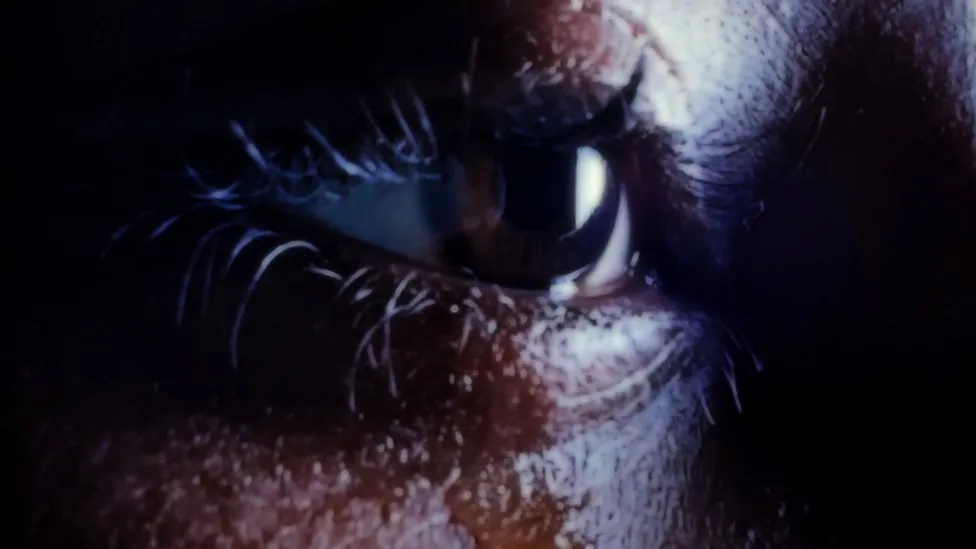Sudan conflict: Women tell BBC horror stories of rape
While Kolthom was being gang-raped by four paramilitary fighters in Sudan's war-hit Darfur region, she was also being racially abused.

Warning: This article contains details some readers may find distressing.
"They were very barbaric. They took turns raping me under the tree where I had gone to gather wood to [make a fire to] keep warm," she said in a quivering voice, down the phone line.
We have changed her name and that of another rape survivor quoted in this article.
Kolthoum, who is in her 40s, is from West Darfur's black African Masalit community, while her rapists were Arabs from the Rapid Support Forces (RSF).
This paramilitary group is accused of carrying out many atrocities in a conflict that has increasingly assumed racial and ethnic overtones in Darfur.
Kolthoum lived in El Geneina - historically a symbol of black African power in Darfur, and the traditional capital of the Masalit kingdom. She has now fled with her ill husband and children.
Kolthoum says her rapists told her to leave the city as it "belongs to the Arabs", fuelling the fears of many black Africans that the RSF - along with allied militias known as the Janjaweed - want to turn the ethnically mixed region into an Arab-ruled domain.
Sudan plunged into a civil war in mid-April, after its two most powerful generals - army chief Abdel Fattah al-Burhan and RSF commander Mohamed Hamdan Dagalo, better known as "Hemedti" - fell out.
Their feud has reignited the conflict in Darfur, which first broke out in 2003, causing the deaths of an estimated 300,000 people in the region.
The latest conflict has forced more than 160,000 people, mostly from the Massalit community to flee to Chad. It is unclear how many people have been killed in the region, with the lowest estimate of the death toll in El Geneina put at 5,000.
RSF fighters have also been accused of carrying out atrocities in Sudan's most populous state - Khartoum, home to the capital city.
The paramilitaries control much of the state, with the army failing to push them back. The fighting has led to an exodus of close to two million people since mid-April.
In Khartoum, the violence has not taken a racial or ethnic dimension. Arabs and people of other ethnicities are victims of the ongoing battles.
Ibtissam, 24, told the BBC she was on her way to visit her aunt when three RSF soldiers stopped her.
"They pulled their guns at me and asked me where I was going. When I told them that I was going to my aunt's house, they accused me of belonging to the army's intelligence services," she told me, her voice breaking.
The soldiers then forced her to accompany them in their car and took her into a nearby house.
"I saw another man inside the house, stripped to his underwear. I tried to run away. But one of the soldiers hit me so hard, I fell to the floor. They threatened to kill me if I moved or yelled again," she said, as she wept over the phone.
"The three of them took turns raping me more than once. They then led me back into their car and threw me on the side of the road at sunset," she said.
After a short pause, Ibtissam described how she felt "utterly humiliated and angry".
"I wanted to commit suicide. But I held it together. I went back home and did not tell anyone what happened."
The UN Human Rights office in Sudan said in early July that it had received reports of 21 incidents of sexual violence against at least 57 women and girls.
UN human rights chief Volker Türk noted that "the RSF has been identified as the perpetrator" in almost all cases reported to his office.
Both the UN and local rights groups believe these numbers are only a fraction of the real scale of the crime.
Sudanese human rights activist Ahlam Nasser said she had no doubt that rape was being used "systematically" as a weapon of war to terrorise people.
"[Rape] has been used in Darfur in the past and it is being used in this current war in Khartoum, particularly by the RSF," she said.
The activist has now fled the country. She said she too had heard horror stories from some of the women back in Khartoum.
"In some cases, mothers were raped in front of their children," Ms Nasser said.
The RSF has denied its fighters are behind these attacks.
In a voice recording sent to the BBC, its spokesman Mohammed al-Mukhtar said their fighters "commit to the highest ethical standards of warfare".
"There are deliberate campaigns to tarnish the reputation of our fighters after the military victories we've achieved," he added.
When I told him that I had spoken to women who had identified RSF fighters as their attackers, Mr al-Mukhtar said that people masquerading as RSF members were responsible for the atrocities.
The conflict has left survivors of rape and sexual violence with little help. Most hospitals are no longer functioning, and it can be difficult to reach the few that are.
Kolthoum and Ibtissam told me the pain will haunt them forever.
"I will never forget what happened to me. A mark of shame will follow me forever, just like my shadow," Kolthoum said.
-bbc







